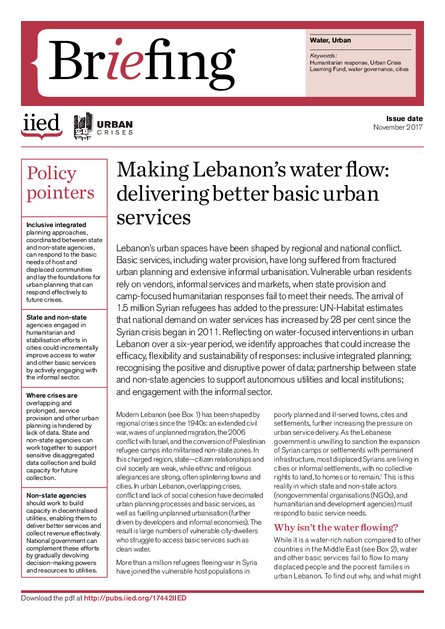
Lebanon’s urban spaces have been shaped by regional and national conflict. Basic services, including water provision, have long suffered from fractured urban planning and extensive informal urbanisation. Vulnerable urban residents rely on vendors, informal services and markets, when state provision and camp-focused humanitarian responses fail to meet their needs. The arrival of 1.5 million Syrian refugees has added to the pressure: UN-Habitat estimates that national demand on water services has increased by 28 per cent since the Syrian crisis began in 2011. Reflecting on water-focused interventions in urban Lebanon over a six-year period, we identify approaches that could increase the efficacy, flexibility and sustainability of responses: inclusive integrated planning; recognising the positive and disruptive power of data; partnership between state and non-state agencies to support autonomous utilities and local institutions; and engagement with the informal sector.
Links
Resource collections
- UN Habitat - Urban Response Collection
- Urban Response - Urban Crisis Preparedness and Risk Reduction
- Urban Response Collection - Community Engagement and Social Cohesion
- Urban Response Collection - Economic Recovery
- Urban Response Collection - Environment and Climate Change
- Urban Response Collection - Housing, Land and Property
- Urban Response Collection - Urban Crisis Response, Recovery and Reconstruction
- Urban Response Collection - Urban Resilience